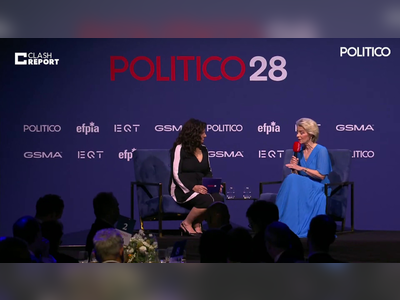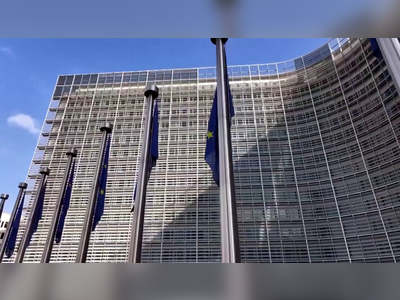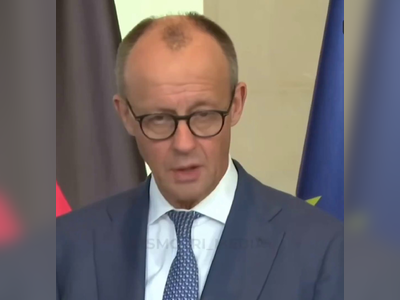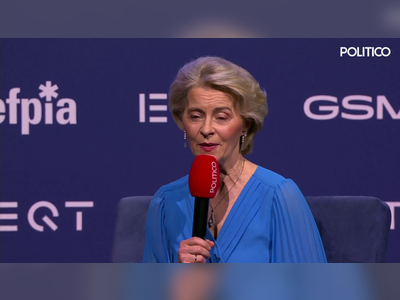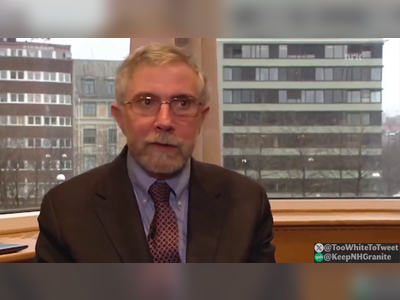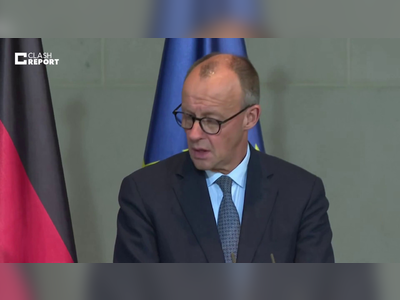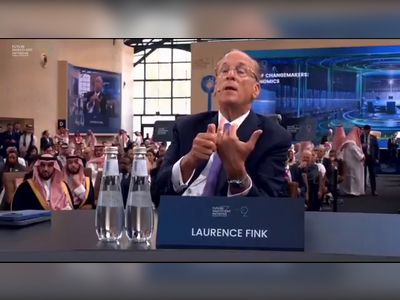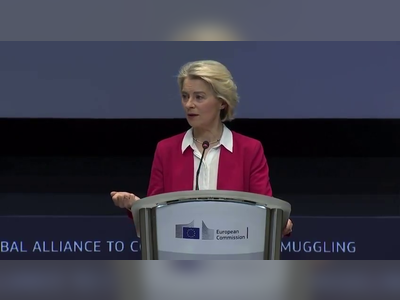Trump's Political Strategy and Its Impact on Global Far-Right Movements
The U.S. President's rhetoric resonates with European far-right leaders, creating complexities in transatlantic political relationships.
During a press briefing on April 1, 2025, U.S. President Donald Trump voiced strong disapproval of the legal ban imposed on French far-right politician Marine Le Pen, describing her conviction as a politically motivated "witch hunt." Trump has likened his legal challenges to those faced by political allies in Europe, framing his narrative as one of victimhood.
This rhetoric has been echoed by Le Pen, who has adopted similar themes of martyrdom, reflecting Trump's previous responses to the events of January 6, 2021. Recent polling data indicates that Le Pen's protégé, Jordan Bardella, may position himself as a frontrunner in the upcoming 2027 French presidential election.
Trump's political maneuvers appear to reinforce a perception within the MAGA movement that evading legal scrutiny is acceptable and expected; a sentiment that has become prominent throughout his presidency amid sustained attacks on judicial institutions.
Courts and judges that oppose Trump's policies have increasingly become targets of his criticism, indicating a significant shift in the dynamics between the executive and judiciary branches of the U.S. government.
The implications of Trump's strategy extend beyond the United States, as he seeks to forge alliances with populist leaders across Europe.
This effort is notably supported by tech billionaire Elon Musk, who has publicly backed Le Pen amid her legal battles and criticized governmental investigations into far-right parties in nations such as Germany and Romania.
The combination of Trump's rhetoric and Musk's initiatives on free speech reveals a complex approach aimed at consolidating political influence through controversial methods.
This emerging trend raises concerns among international observers, who suggest it may threaten democratic institutions while facilitating opportunism among European political figures.
Trump's actions can be associated with Antonio Gramsci's notion of cultural hegemony, wherein dominant narratives infiltrate societal structures, often through influential media and educational institutions.
Throughout his presidency, Trump has targeted various societal organizations, including media outlets and academic programs, in a bid for cultural dominance.
Moreover, Trump's economic policies, highlighted by his aggressive tariffs termed "Liberation Day," signal a tendency to impose pressure on international relations.
Critics warn that such actions pose risks to global economic stability, while Trump maintains they will ultimately bolster the American economy.
In the European context, signs of resistance to Trump's narrative are surfacing.
Growing skepticism from European nations indicates a potential decline in Trump's influence, as discussions about trade reveal a concerted effort to diversify partnerships and reduce dependence on the U.S. A notable recent event in the U.S. was the outcome of the Wisconsin Supreme Court election, which suggested a backlash against both Trump and Musk, with their endorsed candidate faltering despite extensive financial support and contentious campaigning methods.
This development points to a broader discontent within Republican circles regarding Musk's impact on the party.
As the United States navigates significant political challenges and the possibility of economic instability, European nations find themselves with an opportunity to reassess their positions on authoritarianism and reaffirm core EU values that promote cultural openness and human rights.
This rhetoric has been echoed by Le Pen, who has adopted similar themes of martyrdom, reflecting Trump's previous responses to the events of January 6, 2021. Recent polling data indicates that Le Pen's protégé, Jordan Bardella, may position himself as a frontrunner in the upcoming 2027 French presidential election.
Trump's political maneuvers appear to reinforce a perception within the MAGA movement that evading legal scrutiny is acceptable and expected; a sentiment that has become prominent throughout his presidency amid sustained attacks on judicial institutions.
Courts and judges that oppose Trump's policies have increasingly become targets of his criticism, indicating a significant shift in the dynamics between the executive and judiciary branches of the U.S. government.
The implications of Trump's strategy extend beyond the United States, as he seeks to forge alliances with populist leaders across Europe.
This effort is notably supported by tech billionaire Elon Musk, who has publicly backed Le Pen amid her legal battles and criticized governmental investigations into far-right parties in nations such as Germany and Romania.
The combination of Trump's rhetoric and Musk's initiatives on free speech reveals a complex approach aimed at consolidating political influence through controversial methods.
This emerging trend raises concerns among international observers, who suggest it may threaten democratic institutions while facilitating opportunism among European political figures.
Trump's actions can be associated with Antonio Gramsci's notion of cultural hegemony, wherein dominant narratives infiltrate societal structures, often through influential media and educational institutions.
Throughout his presidency, Trump has targeted various societal organizations, including media outlets and academic programs, in a bid for cultural dominance.
Moreover, Trump's economic policies, highlighted by his aggressive tariffs termed "Liberation Day," signal a tendency to impose pressure on international relations.
Critics warn that such actions pose risks to global economic stability, while Trump maintains they will ultimately bolster the American economy.
In the European context, signs of resistance to Trump's narrative are surfacing.
Growing skepticism from European nations indicates a potential decline in Trump's influence, as discussions about trade reveal a concerted effort to diversify partnerships and reduce dependence on the U.S. A notable recent event in the U.S. was the outcome of the Wisconsin Supreme Court election, which suggested a backlash against both Trump and Musk, with their endorsed candidate faltering despite extensive financial support and contentious campaigning methods.
This development points to a broader discontent within Republican circles regarding Musk's impact on the party.
As the United States navigates significant political challenges and the possibility of economic instability, European nations find themselves with an opportunity to reassess their positions on authoritarianism and reaffirm core EU values that promote cultural openness and human rights.
AI Disclaimer: An advanced artificial intelligence (AI) system generated the content of this page on its own. This innovative technology conducts extensive research from a variety of reliable sources, performs rigorous fact-checking and verification, cleans up and balances biased or manipulated content, and presents a minimal factual summary that is just enough yet essential for you to function as an informed and educated citizen. Please keep in mind, however, that this system is an evolving technology, and as a result, the article may contain accidental inaccuracies or errors. We urge you to help us improve our site by reporting any inaccuracies you find using the "Contact Us" link at the bottom of this page. Your helpful feedback helps us improve our system and deliver more precise content. When you find an article of interest here, please look for the full and extensive coverage of this topic in traditional news sources, as they are written by professional journalists that we try to support, not replace. We appreciate your understanding and assistance.
